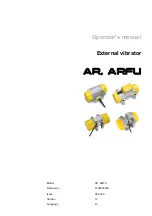
GREEN GREEN GREEN GREEN
GREEN
GREEN
GREEN
GREEN
GREEN
GREEN
GREEN
GREEN
GREEN
GREEN
GREEN
GREEN
GREEN
GREEN
1. Can I do CPR?
Yes, in the right clinical scenario. Chest compressions may pose
a risk of dislodgement - use clinical judgment. If compressions
are administered, confirm function and positioning of the pump.
2. Can the patient be defibrillated while connected to the
device?
Yes you can defibrillate, and you do not have to disconnect
anything.
3. Can this patient be externally paced?
Yes.
4. What type of alarm occurs in a low flow state?
A red heart alarm indication and steady audio alarm will sound
if less than 2.5 lpm. Can give a bolus of normal saline and
transport to a VAD center.
5. Can I change the speed of the device?
No, it is a fixed speed.
6. Does the patient have a pulse with this device?
Likely they will not because it is a continuous flow device,
however some patients may have a pulse.
7. What are acceptable vital sign parameters?
MAP 70 - 90 mm Hg with a narrow pulse pressure.
HeartMate 3™ Left Ventricular Assist System
FAQs
l
Pump has “artificial pulse” created
by rapid speed changes in the
pump. This can be heard when
auscultating the heart and differs
from other continuous flow devices.
l
May not be able to obtain cuff
pressure (continuous flow pump).
l
Pump connected to driveline
exiting patient’s abdominal area
and is attached to controller which
runs the pump.
l
Pump does not affect ECG.
l
All ACLS drugs may be given.
l
A pair of fully charged batteries
lasts up to 17 hours.
l
Any emergency mode of
transportation is ok. These
patients are permitted to fly.
l
Avoid pulling, twisting, or kinking
the driveline when strapping the
patient to a stretcher.
l
Be sure to bring
ALL
of the
patient’s equipment with them.
Figure 1
This guide does not supersede manufacturer instructions.
The HeartMate 3™ LVAD has a modular cable connection near the
exit site of the driveline (Figure 1). This allows a damaged driveline
to be quickly replaced (if damage is external).
l
When disconnecting a driveline, NEVER use the modular cable
connection.
l
If the modular cable requires replacement, it must be done at and
by the implanting center. Patients are not given a backup modular
cable.
l
If the connection is loose, a yellow line at the connection will be
showing. If the line is visible, turn the connector in the locked
direction. It will ratchet and stop turning once tight.
9






















